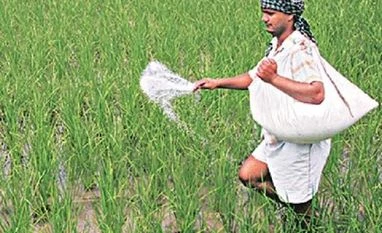By Nidhi Verma
NEW DELHI (Reuters) - India will not need to buy fertiliser from the spot markets to meet local demand in the summer sown crop season starting from April, the country's fertilisers minister said on Wednesday.
"There will be no shortages of fertilisers in the kharif season. We have adequate stocks, and our companies have made arrangements in advance," Mansukh Mandaviya said at a press conference.
India's six-month summer sown crop season starts in April. The country relies on imports to meet a third of its annual domestic demand of crop nutrients, which is sold at a discount to farmers. The government provides subsidies to local fertiliser producers for sale of their produce at below market rates.
Asia's third-largest economy needs crop nutrients to feed its huge agriculture sector, which employs about 60% of the country's workforce and accounts for 15% of its nearly $3 trillion economy.
"We may not need to go to the spot market for the Kharif crop. Our stocks and production capacities will be sufficient to meet domestic demand of Urea and NPK (nitrogen, phosphorus, potassium)," Mandaviya said.
Also Read
The shortfall in availability of di-ammonium phosphate (DAP) and potash will be met through purchases under the long term deals, he said.
Indian companies have signed a slew of long-term deals with countries such as Saudi Arabia, Canada, Russia, Oman, Israel and Jordan to secure crop nutrients.
To cut its huge subsidy bill and push states to encourage farmers to use organic manure, India in its Budget proposals for 2023/24 announced a scheme known as Pradhan Mantri - Promotion of Alternative Nutritious And Agriculture Management (PM-PRANAM).
Under the scheme, the states that cut use of chemical-based fertilisers will be given financial incentives.
"Once the budget proposals are approved by the cabinet, we will take the proposal to the cabinet for implementation," Mandaviya said.
(Reporting by Nidhi Verma; Editing by Bernadette Baum)
(Only the headline and picture of this report may have been reworked by the Business Standard staff; the rest of the content is auto-generated from a syndicated feed.)
)